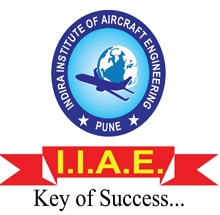How are B Sc. placements at Indira Institute of Aircraft Engineering?
The Indira Institute of Aircraft Engineering (IIAE) in Pune has a 98% placement record. The average salary package is INR 3.5 LPA. The average starting salary package for certain airlines is 1 to 2 LPA.
Placement Record: The Indira Institute of Aircraft Engineering (IIAE) in Pune has achieved an impr
Similar Questions for you
IIAE is the first aviation college in western region having 8+ leading MROs and Airlines like GMR Hyderabad, AAR Indamer, STAR AIR, Air India, Indigo, Mytri Aviation & Manah Aerospace & Engineering Pvt. Lmt. As per the latest report of IIAE placements, the the highest package offered durin
Graduates can ensure aircraft safety and compliance by working as licensed aircraft maintenance engineers. Airlines, aircraft manufacturers, and maintenance repair organizations (MROs) are among the places where they might find possibilities. Graduates of the curriculum are prepared for technical av
A BSc in Aircraft Maintenance Engineering from Indira Institute of Aircraft Engineering (or any similar approved institute) opens up several career opportunities, primarily within the aviation industry. However, it's important to understand that a BSc alone doesn't make you a licensed Aircraft Maint
The candidate should have passed Class 12 with a minimum of 50% of the maximum marks. Physical Fitness Certificate and No Color Blindness Certificate are also a must. The selection process is first-come, first-served, and admission is based on merit. You have good prospects of secu
According to the information gathered by the verified Shikhsa reviews and information collected through official sources, it is proven that the placements for AME courses and other courses offered at Indira Institute of Aircraft Engineering are good. However, the institute does not provide an accura
Taking an Exam? Selecting a College?
Get authentic answers from experts, students and alumni that you won't find anywhere else.
On Shiksha, get access to
Learn more about...

Most viewed courses
Didn't find the answer you were looking for?
Search from Shiksha's 1 lakh+ Topics
Ask Current Students, Alumni & our Experts
Have a question related to your career & education?
See what others like you are asking & answering
